Upcoming opportunities
Every week, we update this list with new meetings, awards, scholarships and events to help you advance your career. If you’d like us to feature something that you’re offering to the bioscience community, email us with the subject line “For opportunities list.” ASBMB members’ offerings take priority, and we do not promote products/services. Learn how to advertise in ASBMB Today.
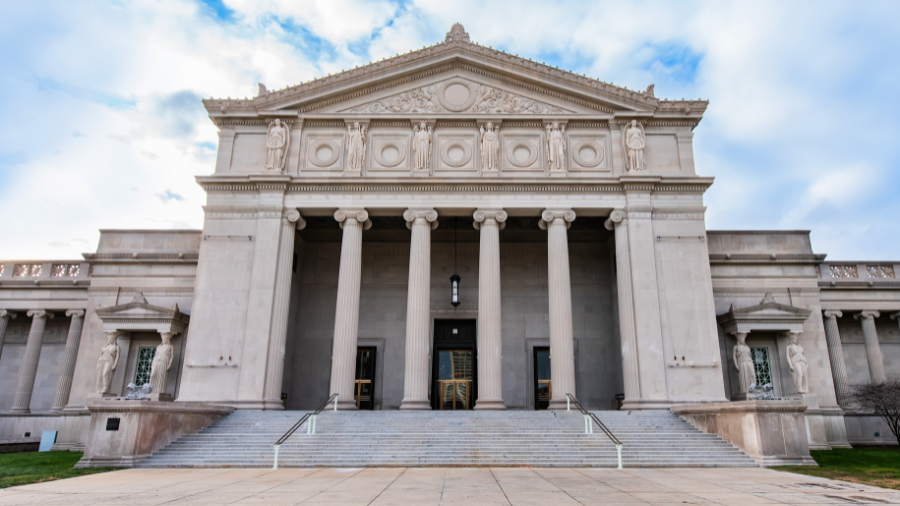
April: Add the #ASBMB25 closing reception to your registration before it sells out!
Wrap up #ASBMB25 in style! Join us at 7:30 p.m. CDT on April 15 for an unforgettable evening of networking, celebration and interactive science fun at the renowned Griffin Museum of Science and Industry. Catch up with friends old and new while you stroll through iconic exhibits like Science Storms, The Great Train Story and Extreme Ice as well as new experiences like The Blue Paradox and Notes to Neurons. Enjoy food and beverages from 7:30-9:30 p.m. CDT with access to the museum’s main floor exhibits until 10:30 p.m. CDT. Shuttle service will be provided from the Hyatt Regency McCormick Place. It’s not too late to RSVP — add this event to your registration today before it sells out!
(Photo credit: Griffin Museum of Science and Industry.)
April: NIH OITE announces that recruitment for the Postbac Program and recruitment of Postdocs (IRTAs and CRTAs) who are U.S. citizens or permanent residents has resumed
The NIH Office of Intramural Training and Education (OITE) announced that recruitment for some programs has resumed. These include:
- Recruitment for the Postbac Program, which offers an "opportunity for recent college graduates to spend one or two years performing full-time research in the Intramural Research Program at the NIH." Applications are accepted year-round, but "the majority of postbacs start June–Oct." Learn more.
- Recruitment of Postdocs (IRTAs and CRTAs) who are U.S. citizens or permanent residents, which is for "recent doctoral degree recipients interested in further developing their research skills while exploring research and research-related careers. These are full-time research positions in one of the NIH Institutes and Centers (IC) in the NIH Intramural Research Program." Learn more.
April: Scientists whose federal grants were recently terminated are invited to apply for a Redwood Ink Academy Grant
Redwood Ink is accepting applications for a free 1-year enrollment in its Scientific Writing Simplified course and Redwood Ink Academy to support principal investigators of federally funded grants that were terminated. Learn more.

April 10: Register for the 2025 ASBMB Annual Meeting by the regular registration deadline
The 2025 annual meeting of the American Society for Biochemistry and Molecular Biology takes place April 12–15 in Chicago. When you attend the 2025 ASBMB Annual Meeting, you’ll shape what’s possible — for your science, for your career, and for the future of biochemistry and molecular biology research.
Already registered? Visit our annual meeting website to start adding special sessions, keynote lectures, scientific symposia and more to your personal schedule. Still need to register? Not to worry, there's still time to save. Register by April 10 for the regular rate.
ASBMB members save on registration. Not a member or need to renew? Join now or renew your membership.
April 11: The Helen Hay Whitney Foundation invites applications for its 2025 postdoctoral research fellowship
The ultimate goal of the Helen Hay Whitney Foundation, which supports early postdoctoral research training in all basic biomedical sciences, is "increasing the number of imaginative, well-trained, and dedicated medical scientists." The foundation offers financial support for three years to those planning careers in biological or medical research. The online application form will become available on April 11. The deadline to apply for a 2025 Helen Hay Whitney postdoctoral fellowship is 5 p.m. EDT on June 16. Learn more.

April 15: Apply for the IMAGE grant writing workshop
The ASBMB Interactive Mentoring Activities for Grantsmanship Enhancement grant writing workshop is designed to help early-career tenure-track faculty write winning proposals for federal research funding. The 2025 workshop will be held June 12–14 in the Bethesda, Md., area.
Workshop highlights include:
- Real-time constructive feedback on potential research proposals.
- Practical advice on work-life balance, navigating academia and positioning your research program for sustained success.
- Networking with mentors and previous participants that successfully have been awarded funding.
April 23: GEN's virtual summit on the state of multiomics and next-generation sequencing
On April 23, Genetic Engineering and Biotechnology News is hosting "The State of Multiomics & NGS," a virtual summit featuring researchers from industry and academia who will discuss topics such as spatial proteomics, single-cell biology, spatial omics, and perspectives on the pace of NGS technology advancement and progress in genomic medicine. Learn more.
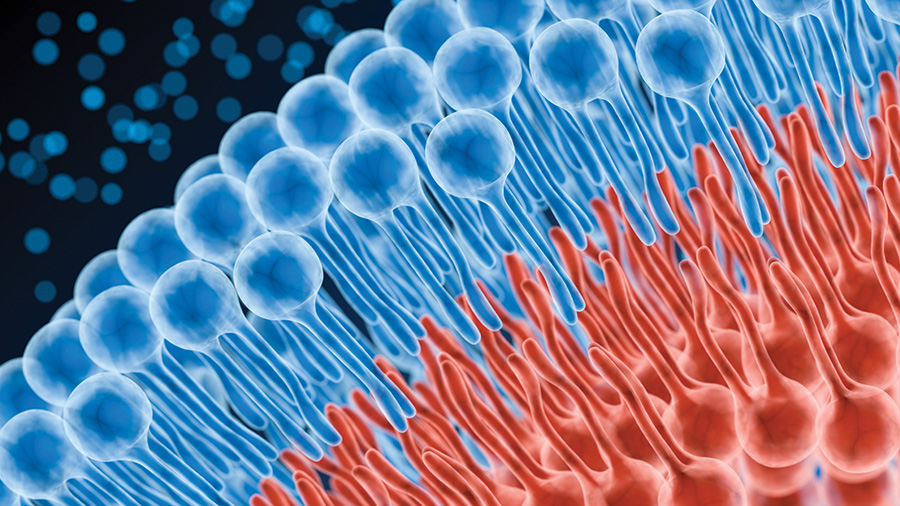
April: ASBMB Lipid Research Division Seminar Series
The ASBMB Lipid Research Division Seminar Series features free, monthly presentations from young researchers highlighting their recent work in the field of lipids. Stay tuned for details on the April seminar. In the mean time, watch recent sessions on-demand.
May 1: Deadline to apply for a Promoting Research Opportunities for Latin American Biochemists fellowship
Promoting Research Opportunities for Latin American Biochemists (PROBio-LatAm) Fellowships, supported by the Pan-American Association for Biochemistry and Molecular Biology (PABMB), the International Union of Biochemistry and Molecular Biology (IUBMB), and the Federation of European Biochemical Societies (FEBS), aims to foster international collaboration. Through this program, participating graduate students, postdoctoral fellows and researchers within five years of receiving their Ph.D. who are residents of Latin American countries that are members of PABMB and affiliated with PABMB will receive support to conduct research at laboratories in FEBS countries. Awards will be granted for a maximum of €7,000. Learn more.
May 1: Deadline to apply for a 2025 Monarch Nucleic Acid Purification Scholarship
The Monarch Scholarship from New England Biolabs recognizes individuals who are delivering research excellence, caring for our planet and supporting their community. Three $2,025 scholarships will be awarded, which recipients can use to fund research, travel to a conference, support tuition costs and more. Winners will also have the option to donate the scholarship to charity. Learn more.
May 1: Deadline to apply for AAAS' Science & Technology Policy Fellowship Rapid Response Cohort in AI
The American Association for the Advancement of Science is seeking applications for its STPF Rapid Response Cohort in AI to help members of Congress shape AI policies. The scientific and engineering expertise of these fellows will help support "smart policies for this powerful technology." Subject matter area expertise sought includes: AI and generative technologies, robotics, psychology and human factors and more. Fellows will receive a stipend in the GS-12, Step 10 level for federal employees in the Washington, D.C. locality ($131,826 as of 2025). Learn more.
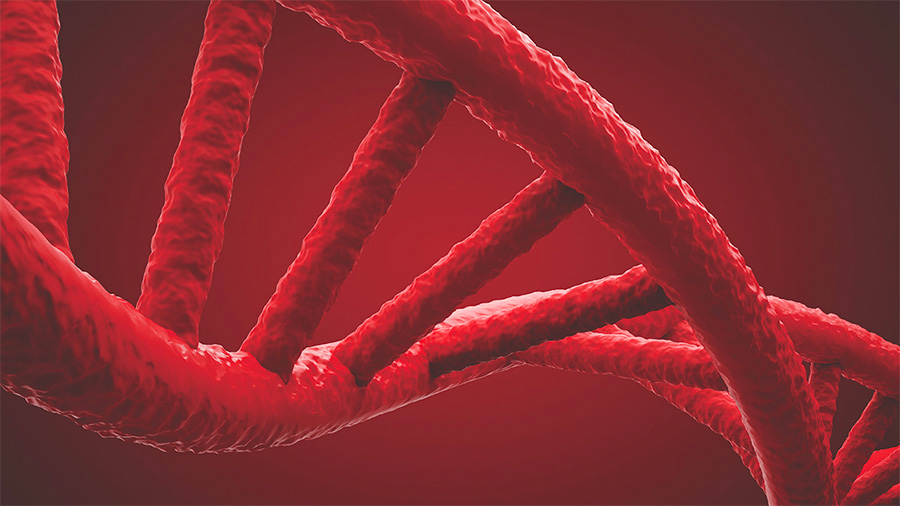
May 7: Oral abstract and early registration deadline for ASBMB's meeting on gene expression
"Evolution and core processes in gene expression," which will be held at Stowers Institute in Kansas City, Mo. from June 26–29, will showcase the most recent insights into the cis-regulatory code; how cis-regulatory information is read out by transcription factors, signaling pathways and other proteins; how cellular diversity is created during development; and how we can study this problem using cutting-edge genomics technology and computational methods. Learn more and submit an abstract by May 7.
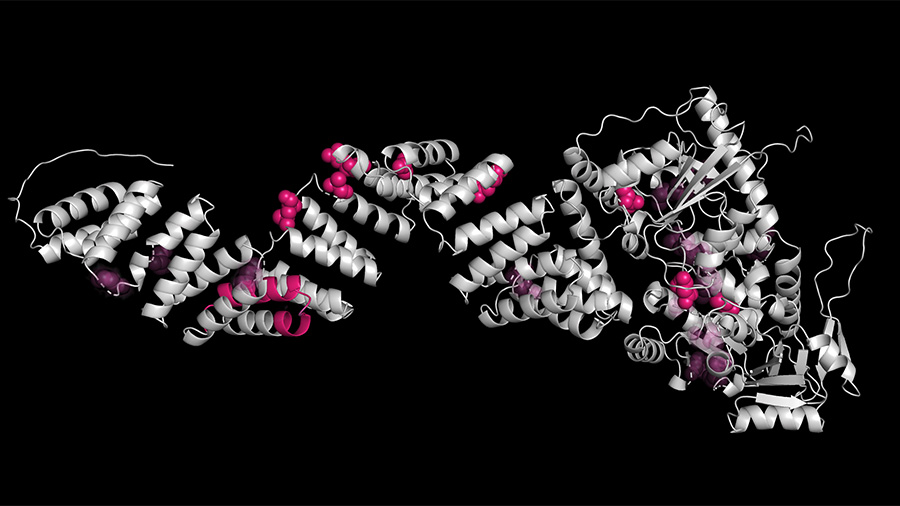
May 12: Oral abstract and early registration deadline for ASBMB's O-GlcNAc meeting
"O-GlcNAcylation in health and disease," which will be held July 10–13 in Durham, N.C., will cover O-GlcNAc cycling enzymes and the O-GlcNAc modification in modulating protein function in basic biological processes as well as in disease states, including diabetes, cancer, cardiovascular disease and neurological diseases. Graduate students and postdocs will be selected for oral talks and discuss their work at poster sessions. Learn more and submit an abstract.
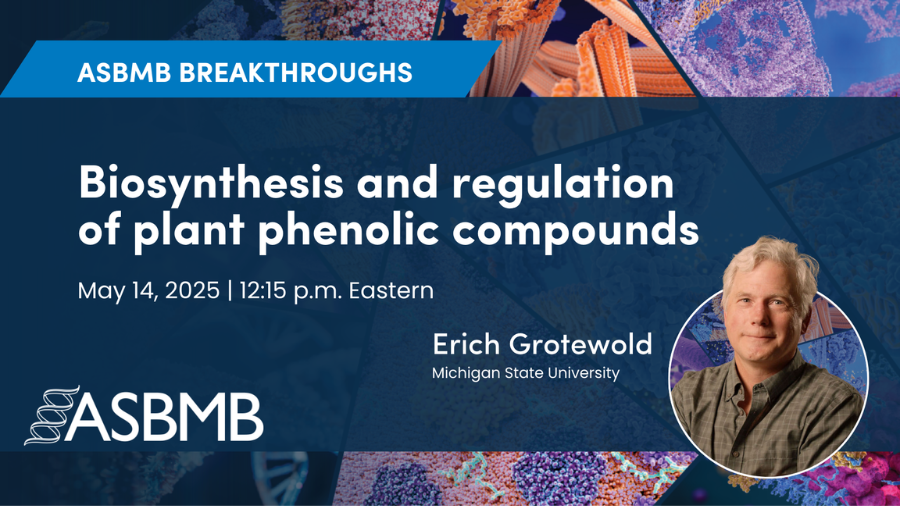
May 14: ASBMB Breakthroughs webinar on biosynthesis and regulation of plant phenolic compounds
The ASBMB Breakthroughs webinar series offers a window into the cutting-edge biochemistry and molecular biology research driving discovery. Each month, this series highlights groundbreaking research, pioneering methodologies, and emerging trends redefining the boundaries of science.
The next webinar will be at 12:15 p.m. EDT on May 14. Erich Grotewold, a professor of plant biology at Michigan State University, will focus on the biosynthesis and regulation of flavonoids and phenylpropanoids (two phenolic compound classes) in maize and other plants. Grotewold will explore how natural variation in metabolite accumulation drives pathway discovery and discuss gene regulatory mechanisms linked to variations in metabolite levels. Finally, he will highlight unexpected biological activities of flavonoid pathway intermediates, offering new insights into their roles beyond the conventional functions of the resulting flavonoid pigments. Learn more and register.
Recordings of past webinars are available on-demand. Here are the presentations available to-date:
- Jan. 2025: "Lipidomics, shotgun lipidomics and functional lipidomics for Alzheimer’s research"
- Xianlin Han of the University of Texas Health Science Center presents his research on the use of shotgun lipidomics in biological and biomedical contexts. Watch the recording.
- Feb. 2025: "Modulating kinase signaling in disease: Translating basic science into clinical testing"
- Paul Shapiro of the University of Maryland presents his research into mitogen-activated protein kinases (MAPK), their regulation of substrates, and approaches to modulate MAPK functions in disease. Watch the recording.
- March 2025: "Evolution of metallo-β-lactamases: A journey from the test tube to the bacterial periplasm"
- Alejandro Vila of the University of Rosario presents his research on the evolutionary traits of clinical MBL variants under conditions that mimic their natural bacterial environment. Watch the recording.
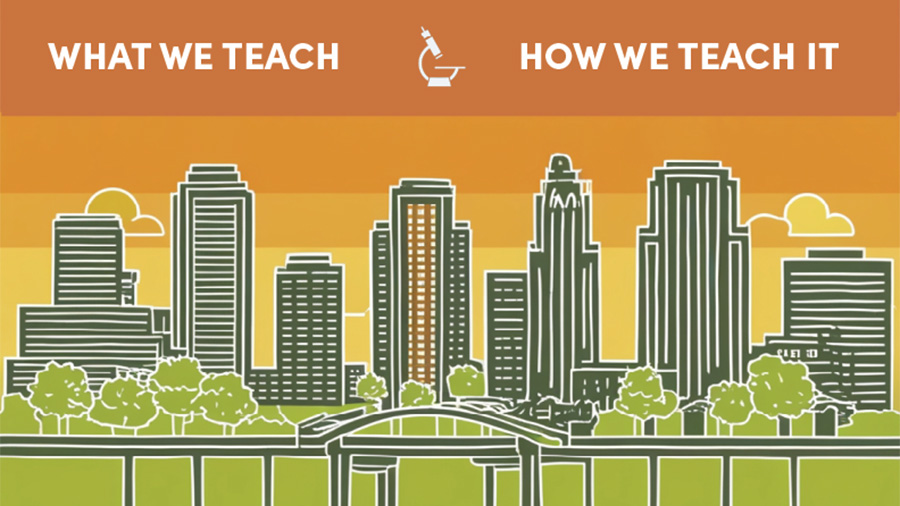
May 20: Early registration and abstract submission deadline for ASBMB's meeting on transforming undergraduate education in the molecular life sciences
Join us at Macalester College in St. Paul, Minn., from July 24–27, for a small interactive, education-focused ASBMB meeting to re-examine existing practices and develop new engaging approaches to supporting student success in biochemistry and molecular biology. Reconnect with peers, meet new colleagues and increase your network of education-minded professionals while exploring the Twin Cities.
Talks and panel discussions will include sessions on the skills, competencies and key concepts we teach through biochemistry and molecular biology content, as well as on the pedagogical approaches that lead to student achievement. Each day will begin with a keynote talk on topics such as culturally-responsive pedagogy, an indigenized chemistry curriculum, alternative grading practices and fidelity of implementation. Keynotes will be followed by panel discussions and break-out sessions, with opportunities to learn about several education-focused NSF-funded projects, including CUREs, assessment, case-based learning and biomolecular visualization. Attendees will also have the opportunity to meet with program directors to learn about funding opportunities for education projects. Anyone interested in biochemistry and molecular biology education — from experienced practitioners to postdocs and graduate students considering careers involving teaching — is encouraged to attend. Register early and submit an abstract by May 20.

May 21: Deadline to submit an abstract for ASBMB's symposium on proteomics
This five-day symposium, held at the Broad Institute of MIT and Harvard in Cambridge, Mass. from Aug. 17–21, will be an international forum for discussion of the remarkable advances in cell and human protein biology revealed by ever-more-innovative and powerful proteomics technologies. The symposium will juxtapose sessions about methodological advances with sessions about the roles those advances play in solving problems and seizing opportunities to understand the composition, dynamics and function of cellular machinery in numerous biological contexts. It will also articulate urgent, unmet needs and unsolved problems that will drive the field in the future. In addition to talks by invited plenary and session speakers, short talks will be selected from submitted abstracts. Learn more and submit an abstract by May 21.
June–July: Participate in a free "Communicating Science for Policy" training session and earn a National Science Policy Network certificate of recognition
Registration is now open for the National Science Policy Network's free training course, "Communicating Science for Policy." The course will support participants in identifying paths for engaging with decision-makers, and they will earn a National Science Policy Network certificate of recognition for participating in the training for five hours over three days and completing a pre- and post-survey. Learn more.
June 4: Application period opens for undergraduate students in summer research programs to give presentations at SACNAS' NDiSTEM Conference
Starting on June 4, undergraduate students in summer research programs are invited to apply to give research presentations at the 2025 SACNAS National Diversity in STEM Conference (NDiSTEM). Research presentations will help young researchers "refine presentation skills, receive one-on-one mentoring and feedback on research, and connect with a supportive community of peers, mentors, and role models." The summer application deadline is July 11. Learn more.
June 13: Deadline to apply for the Angelika Amon Young Scientist Award from the MIT Koch Institute for Integrative Cancer Research
Mid- to late-stage graduate students currently pursuing advanced degrees in the life sciences or biomedical research at non-U.S. institutions are eligible to apply for the Angelika Amon Young Scientist Award from the MIT Koch Institute for Integrative Cancer Research. This award, which was created in memory of Angelika Amon (1967-2020), a pioneering geneticist and cell biologist who is remembered as "a dedicated mentor, guide, advocate, and friend to many scientists." Applications are due at 11:59 p.m. EDT on June 13. Recipients will be invited to spend several days on MIT's campus in Cambridge, Massachusetts (Nov. 3–6, 2025). They will be provided with economy travel, hotel accommodations and a monetary award of approximately $1,000. Learn more.
June 15: Deadline to enter the Eppendorf & Science Prize for Neurobiology
Early career neurobiologists who hold an advanced degree (M.D., Ph.D., or an M.D./Ph.D.), received in the last 10 years, and who are not older than 35 years of age at the time of entry are invited to apply for the Eppendorf & Science Prize for Neurobiology. The prize, valued at $25,000, is awarded annually to "one young scientist for the most outstanding neurobiological research based on methods of molecular, cellular, systems, or organismic biology conducted during the past three years." Learn more.
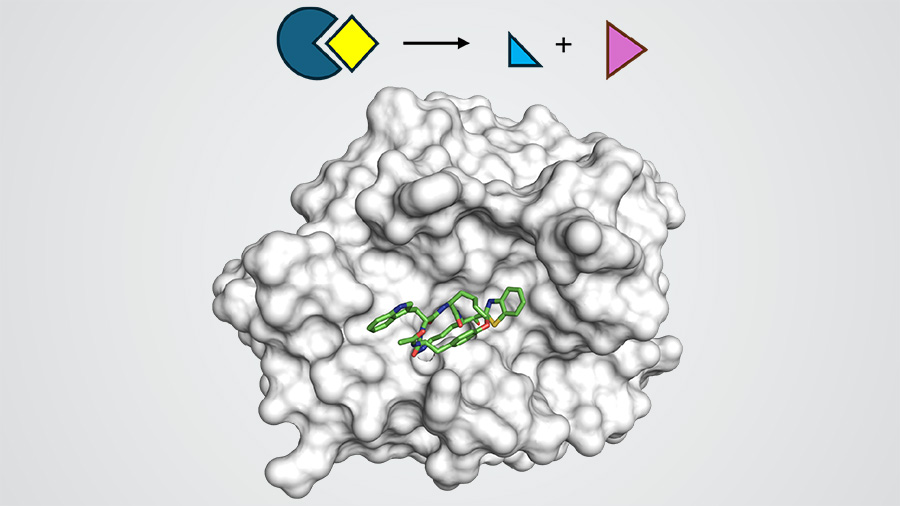
June 20–21: Save the date for ASBMB's virtual meeting on nucleophilic proteases
There are more than 600 proteases in the human genome making it the second largest family of proteins in humans. These proteolytic enzymes are tightly regulated and function by performing post-translational protein modifications through hydrolysis of peptide bonds which results in activation or deactivation of biological pathways in an enormous array of physiological processes. Dysregulated proteolysis is also implicated in a large, diverse set of diseases including those relating to cardiovascular, immunological and cancer. Furthermore, the pathogenesis of many infectious diseases is mediated by proteases, either from the microbe, the host or both. These enzymes are classified by their catalytic mechanism into five types: serine, threonine, cysteine, aspartic and metalloproteases.
This year, we expand upon past meetings by highlighting the most significant recent studies not only on serine, but also on the other classes of nucleophilic threonine and cysteine proteases. The talks organized present aspects of protease biochemistry and biophysics such as structural biology, as well as drug discovery and inhibitor development. Cross-disciplinary topics include cancer, infectious disease (viruses, bacteria, other pathogens), inflammation and immunology, cardiovascular system, and others. Stay tuned for more information.
Do you have a great idea for a scientific event?
We are now accepting proposals for scientific events to be held in 2024 and 2025. You pick the topic, the sessions and the speakers, and we’ll do the rest.
That’s right! We’ll manage registration, market the event to tens of thousands of scientists, and handle all the logistics so that you can focus on the science.
The top areas of research interest among ASBMB members include the following, but we’ll consider all proposals:
- Protein structure and folding
- Molecular bases of disease
- Gene regulation
- Signal transduction
- Metabolism
What molecule, method or research question needs more attention? We’re here to help you realize your vision and deliver cutting-edge science to the BMB community.
Request a Cloud Lab account from the NIH
National Institutes of Health staff and affiliated researchers are invited to register for Cloud Lab accounts. The goal of this self-paced, interactive program is to remove "barriers to cloud adoption by providing no-cost, customized, and scientifically relevant training, making it easier for researchers to learn about and explore the cloud with confidence." Participants will have access to a free cloud account and $500 of credits, which are valid for up to 90 days. Learn more.
Year-round: HHMI Janelia Visiting Scientist Program
Graduate students, postdoctoral fellows and established senior investigators are all invited to participate in Janelia's Visiting Scientist Program. Janelia accepts visitor proposals on a continuous basis. Since 2007, more than 410 visiting scientists from 23 countries have participated in the program. Learn more.
Enjoy reading ASBMB Today?
Become a member to receive the print edition four times a year and the digital edition monthly.
Learn moreFeatured jobs
from the ASBMB career center
Get the latest from ASBMB Today
Enter your email address, and we’ll send you a weekly email with recent articles, interviews and more.
Latest in Careers
Careers highlights or most popular articles

Quieting the static: Building inclusive STEM classrooms
Christin Monroe, an assistant professor of chemistry at Landmark College, offers practical tips to help educators make their classrooms more accessible to neurodivergent scientists.

Unraveling oncogenesis: What makes cancer tick?
Learn about the ASBMB 2025 symposium on oncogenic hubs: chromatin regulatory and transcriptional complexes in cancer.

Exploring lipid metabolism: A journey through time and innovation
Recent lipid metabolism research has unveiled critical insights into lipid–protein interactions, offering potential therapeutic targets for metabolic and neurodegenerative diseases. Check out the latest in lipid science at the ASBMB annual meeting.

Hidden strengths of an autistic scientist
Navigating the world of scientific research as an autistic scientist comes with unique challenges —microaggressions, communication hurdles and the constant pressure to conform to social norms, postbaccalaureate student Taylor Stolberg writes.
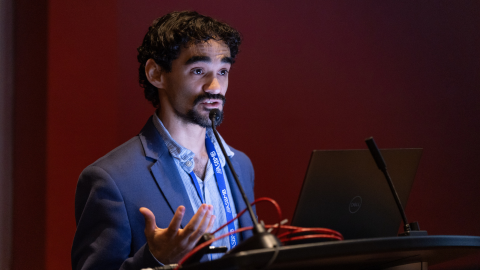
Upcoming opportunities
The countdown to #ASBMB25 is on! Visit our annual meeting website to start adding special sessions, keynote lectures, scientific symposia and more to your personal schedule.
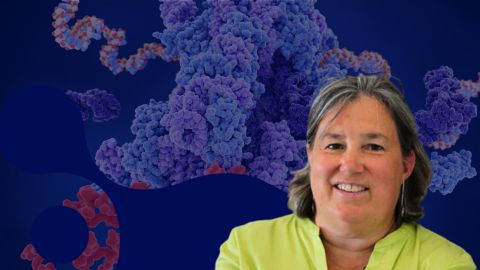
Melissa Moore to speak at ASBMB 2025
Richard Silverman and Melissa Moore are the featured speakers at the ASBMB annual meeting to be held April 12-15 in Chicago.
